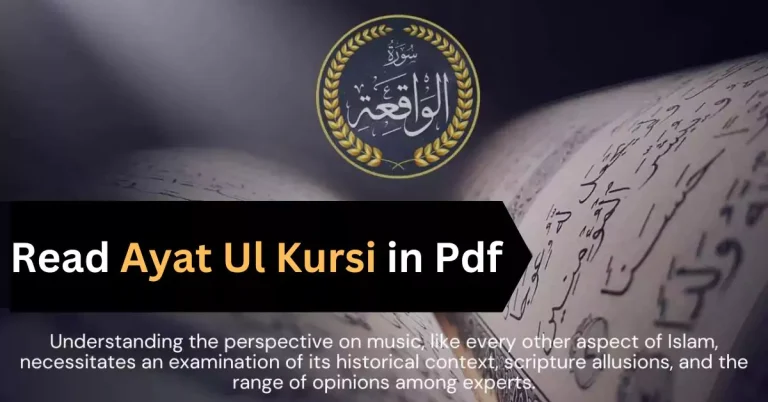Dua-e-Jamilah | An Overview and Exploration
Among the rich tapestry of Islamic supplications, Dua-e-Jamilah stands out for some believers due to its comprehensive nature. Despite not being as prominent as some of the widely recognized supplications from the Qur’an or Hadith, its virtues and benefits are cherished by those who recite it. Let’s delve deeper into its significance, meanings, and the place it holds in the hearts of believers.




Historical Background
The roots of Dua-e-Jamilah are somewhat elusive. Unlike many other prayers and supplications that have direct attributions to the Prophet Muhammad (peace be upon him) or are derived from the Qur’an, Dua-e-Jamilah’s origin is more obscured.
It appears in various Islamic literature, especially in books focusing on Duas and Azkar (remembrances). However, it’s essential to approach such sources with discernment, recognizing the difference between foundational texts and supplementary ones.
The Essence and Content of Dua-e-Jamilah
At its core, Dua-e-Jamilah is a heartfelt plea to the Almighty. Its verses encompass the breadth of human experience:
- Seeking Mercy: One of the recurring themes in Dua-e-Jamilah is the seeker’s appeal for God’s infinite mercy. This is a reflection of the believer’s understanding of human imperfection and the need for divine intervention to attain salvation.
- Guidance and Clarity: In the intricate maze of life, guidance is a boon. The Dua implores God to illuminate the path of righteousness and help the believer tread it with conviction.
- Protection: This world is replete with trials, both seen and unseen. Dua-e-Jamilah is also a shield, with verses seeking refuge from life’s tribulations.
- Provision: The Dua acknowledges Allah as the Sustainer, the One who provides for all needs, and seeks His benevolence in granting sustenance and ease.
Why is Dua-e-Jamilah special?
The beauty of Dua-e-Jamilah lies not just in its words but in the emotions it evokes:
- Connection: At times, the hustle and bustle of life can make one feel distant from their Creator. This Dua serves as a bridge, reconnecting the believer to God.
- Reflection: While reciting, one can’t help but introspect, evaluating their life choices, their relationship with God, and their aspirations for the Hereafter.
- Hope: In moments of despair, Dua-e-Jamilah shines as a beacon of hope. It reinforces the belief that, with God’s mercy, tomorrow can indeed be better.
Reciting with Reverence
There’s no fixed rule for when or how to recite Dua-e-Jamilah. The key is the purity of intention. Facing the Qibla, being in a state of Wudu (ritual purification), and choosing a tranquil environment can enhance the experience. But more than the physical, it’s the state of the heart that matters. A sincere heart, yearning for God’s grace, is what truly breathes life into the words.
Decoding Dua e Jamilah
When you immerse yourself in Dua e Jamilah, it’s akin to baring your soul before the Creator. The verses of this Dua mirror the vast spectrum of human emotions and experiences:
- Quest for Mercy: A dominant theme within Dua-e-Jamilah is the aspirant’s quest for God’s unending mercy. This quest underscores the believer’s cognizance of human frailty and the overarching need for divine grace for salvation.
- Yearning for Guidance: In the convoluted journey of existence, divine guidance is a sanctuary. The Dua ardently beseeches God to bestow the light of righteousness, guiding the believer through life’s tumultuous paths with unwavering faith.
- Seeking Sanctuary: The world presents an array of challenges, both overt and covert. Through Dua-e-Jamilah, one seeks an ethereal armor, a refuge against life’s multifarious tribulations.
- Aspiring for Provision: Acknowledging Allah as the Ultimate Sustainer, the Dua fervently seeks His magnanimity in bestowing sustenance and ensuring well-being and contentment.
The Endearing Charm of Dua-e-Jamilah
Beyond its words, Dua-e-Jamilah’s allure lies in the profound sentiments it evokes:
- Rekindling the Divine Connection: Amidst life’s relentless pace, a sense of estrangement from the Divine might creep in. Dua-e-Jamilah serves as a spiritual conduit, rejuvenating this sacred bond.
- Introspective Journey: Engaging with this Dua is akin to embarking on a soul-searching journey. It prompts reflection upon one’s choices, the nature of their divine relationship, and their aspirations for the life beyond.
- An Anchor of Hope: In times when the shadows of despair loom large, Dua-e-Jamilah emerges as a radiant beacon, reinforcing the belief in a brighter, divinely blessed tomorrow.
The Art of Recitation
The essence of reciting Dua-e-Jamilah, or any Dua for that matter, transcends mere ritual. It’s about the purity of intent. While physical gestures like facing the Qibla, being in a state of Wudu, and choosing a serene ambiance can augment the recitation, the real magic lies in the heart’s genuine yearning.
Also Read A Comprehensive Guide Of Qurbani Ki Dua
FAQs
Conclusion
While Dua-e-Jamilah may not find a universal echo across all Islamic traditions, its resonance is undeniable among its adherents. It stands as a testament to the depth of Islamic spiritual practices, underscoring that myriad paths can lead to one profound truth: the quest for divine proximity.
Irrespective of one’s affinity to Dua-e-Jamilah, one truth remains paramount — it’s the authenticity of one’s intent that truly transcends to the Divine, far beyond mere words.






